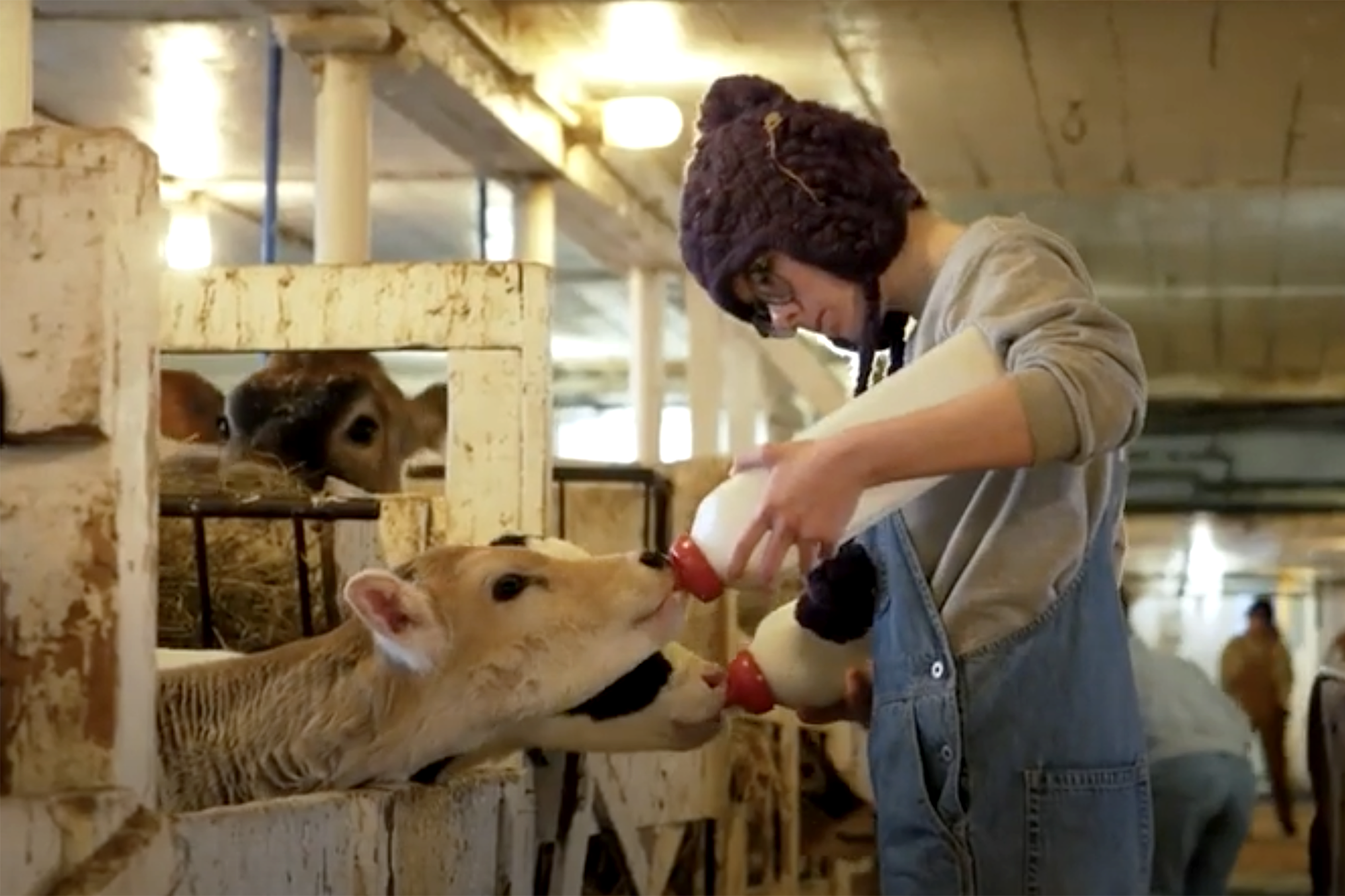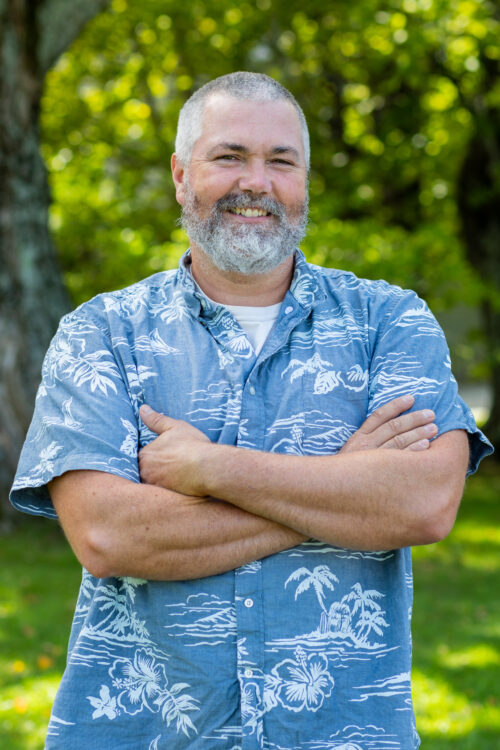
Elm Lea Farm is what first brought Noah Hoskins to The Putney School.
He was 23 years old, and having grown up on his own family farm nearby, was interested in the science of grazing. That’s when he met Putney Farm Manager Pete Stickney, and became a part of his expertly managed grass-fed dairy program.
“I worked there for several years and was starting to think about my next challenge,” Hoskins said. “It was really clear I wanted to keep working with young people and be in the classroom teaching.”
So he went back to school and earned a master’s degree in education. When a position opened up in Putney’s history department, he applied and was accepted. Additionally, Hoskins runs his own farm, Bunker Farm, not far from campus, where he and his family produced pasture-raised pork, chicken, and beef, and maple syrup.
Now, more than a decade later, Stickney is bidding farewell to the farm, leaving behind a 27-year legacy—and yet another window of opportunity for Hoskins, who will be stepping into the farm manager role.
“It’s a big job,” Hoskins said. “I’ve seen a lot of alumni who’ve come through this program and really found it to have a significant impact on their lives. And having worked in education for a long time, it feels like a good challenge, and really important work. What else could you ask for?”
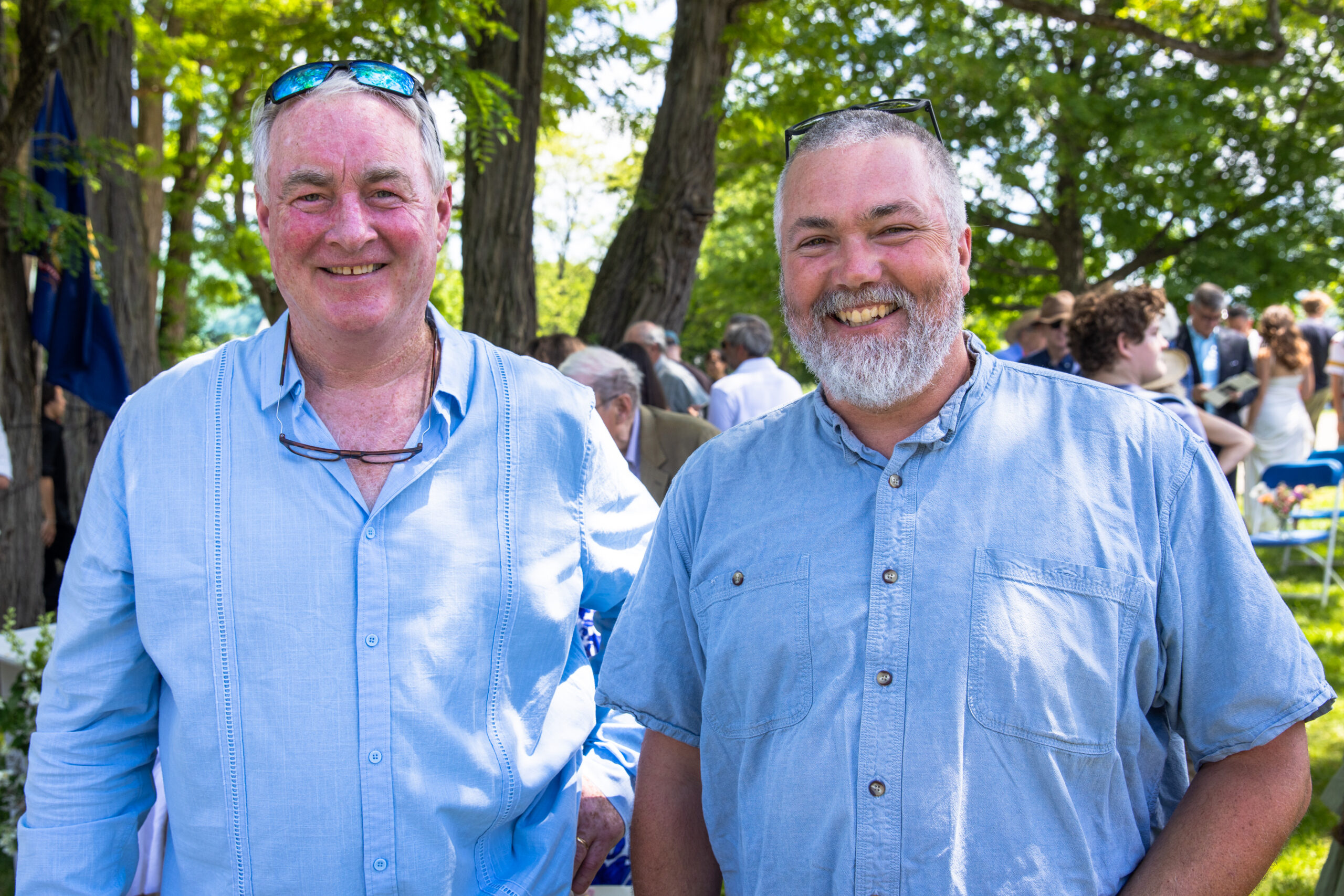
A 10-Year Plan
As he comes full circle, Hoskins is thinking about the future of Putney’s farm. Yes, he’s got some short term goals — which we’ll get to — but he’s truly set on figuring out a mission, a road map, for the era to come.
“My focus is going to be pretty intensive over these next couple of years as we put together our new vision, and reframe where we’d like to be headed in the next decade or so,” he said.
Ultimately, he wants Putney to have “the best experiential agricultural program out there.” To be clear, this does not mean he wants to create the next generation of agricultural business leaders.
“Our goal is to deepen and enrich, to help students understand life beyond the classroom in a wide variety of ways,” he said. “As such, when we think about the role of experience and progressive education in terms of hands-on, interdisciplinary learning, the farm program is a critical component of that. So we hope to be the best experiential agricultural program out there. I think that raises the question, ‘who’s the best now?’ And to answer that question, we have to figure out what that even means.”
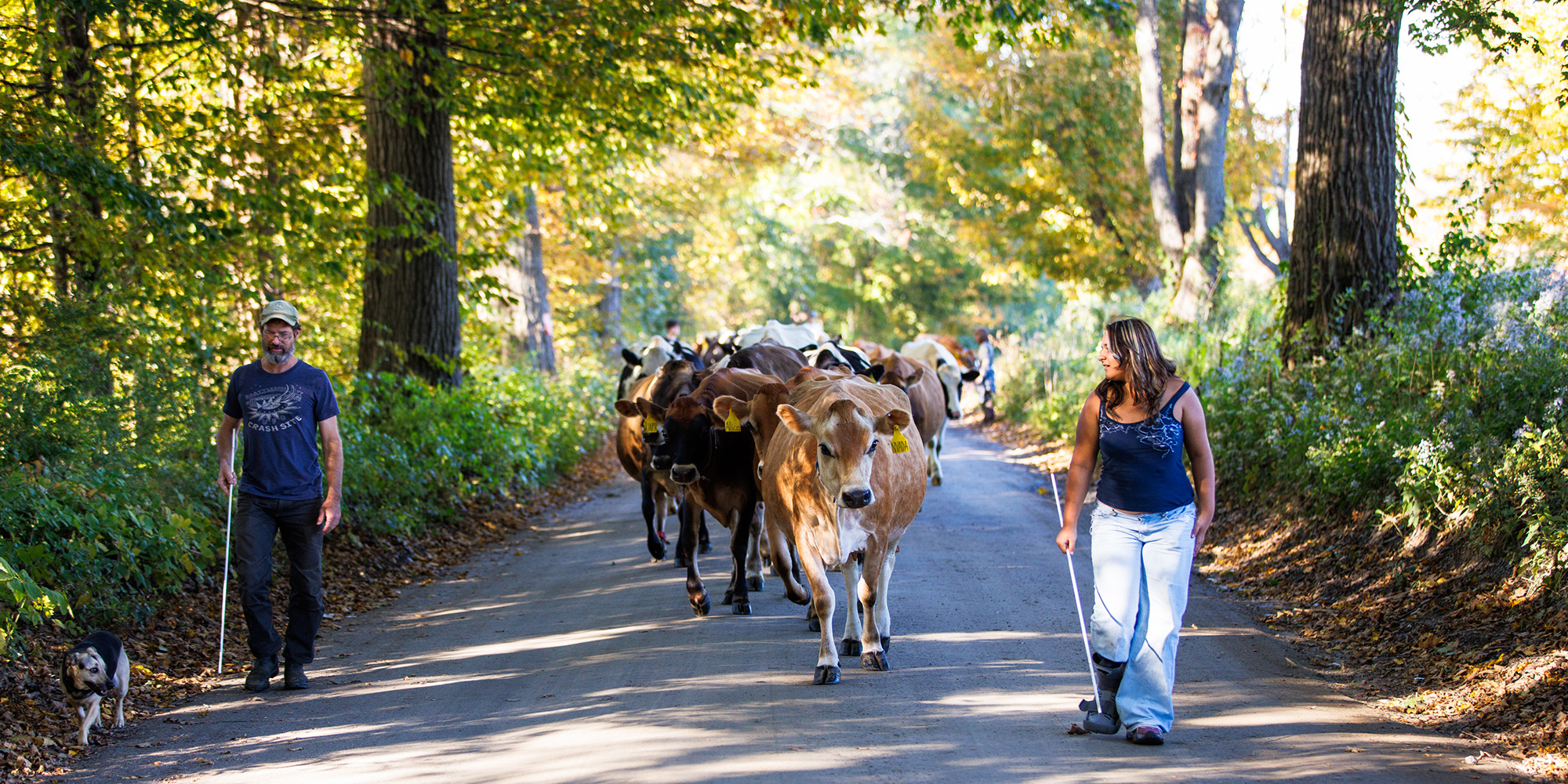
The Short Term Goals
As he zooms out for this deep visionary work, Hoskins is also looking at more immediate, tangible refinements.
“This job is about maintaining and preserving traditions, while also looking to move the program further; to make it more sustainable and effective,” he said. “So I think there’s some great opportunities to protect and preserve some really wonderful stuff, while also evolving into the future.”
For starters, he would love to see more Putney-grown food served at the KDU — ideally at every meal. He’s also interested in expanding the dairy operation to include homemade cheese and ice cream, and wants to revitalize the maple sugaring program by building a mobile, student-run sugar house that can be run at the center of campus.
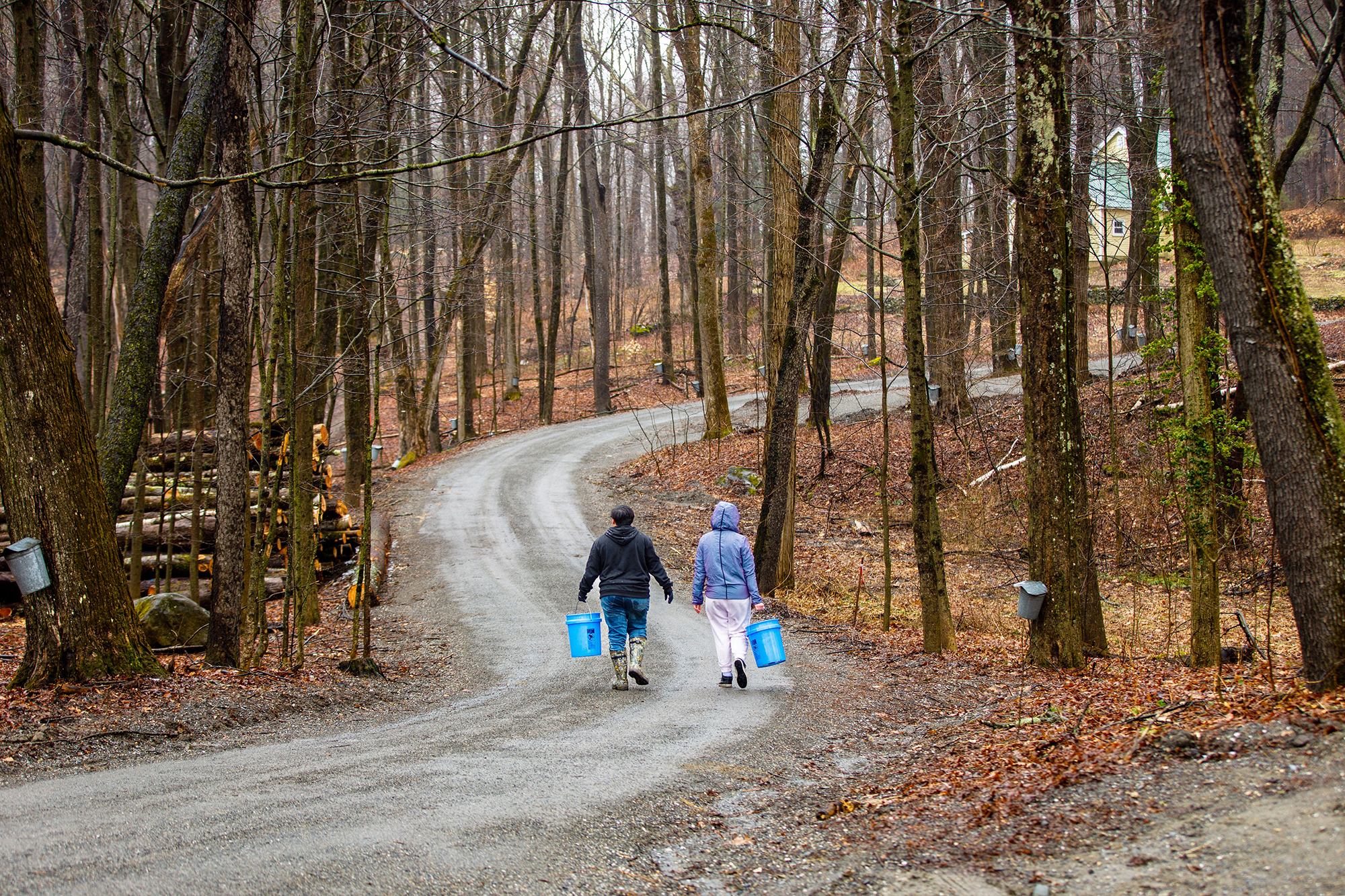
Hoskins also wants to encourage more farm-specific curriculum and interdisciplinary learning opportunities by renovating an old space above the barn to use as a flexible classroom, as well as revamping the teaching and growing space in the greenhouses.
As far as the everyday process goes, he’s looking at experimenting with visual communication systems to expedite work. This could be as simple as displaying a checklist for students so they can easily move from one task to the next, to a more complex digital pasture map to ensure cows get to the correct grazing locations on a regular basis.
In addition, he’d like to implement a Putney farm grant program to help students understand the importance of grant writing, conduct grant-funded projects on campus, and help other farms complete grants they might not otherwise have had time and resources to complete.
“What we’d ultimately like to see is more students engaging with the farm in different ways,” he said.
More than Simply Caring for Cows
There’s a feeling of calm and serenity one gets when walking into the barn, and nobody knows that better than Hoskins.
“I love working with cows,” he said. “The animals are so expressive and to work in that position of care is a really meaningful experience. I really love that sense of excitement they have when you come into the barn in the morning, and the rhythm that develops between the caregiver and the animals over the course of a season as they learn to trust your leadership.”
As a teacher, it’s his job to find the balance between educating students, and being on the lookout for those coachable moments to help students understand just how capable they are.
“We want students to show up, we want students to stand up, and we want students to be involved. And that’s the secret sauce of the program,” he said. “That’s the true beauty of experiential education. It’s not just that we want them to have an experience, but we need them. We need them to be active partners in our work here on the farm. And that is what makes this program unique.”
